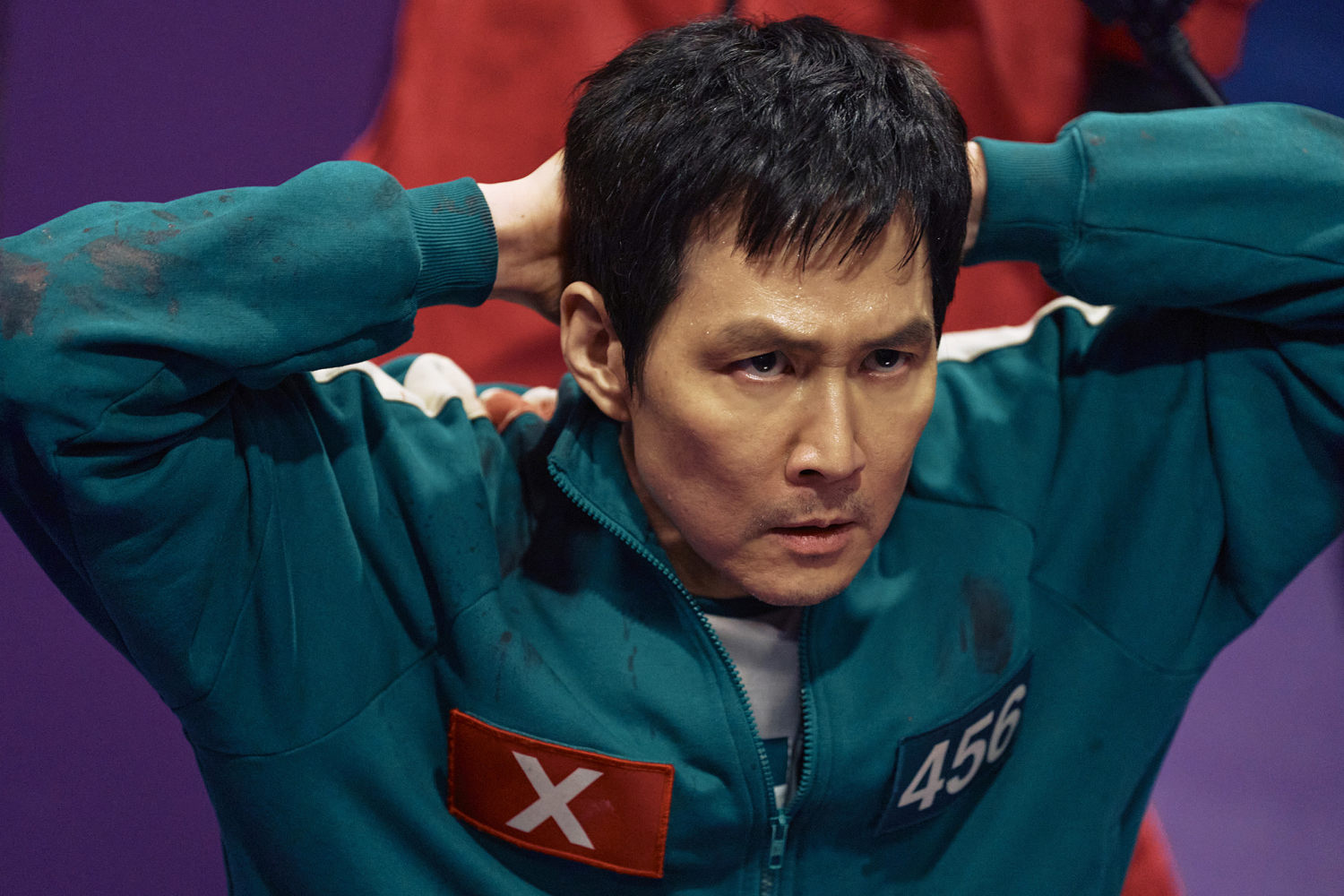
The explosive success of “Squid Game” in 2021 took even Netflix by surprise, as the South Korean drama quickly scaled the ranks and dominated its most-watched list. Now the show returns for a much-anticipated second season, which premieres on Netflix on Dec. 26, and the chord it strikes with its dystopian vision of class conflict might say as much about a changing America as it does about its host country.
When “Squid Game” first took off, the central premise — desperate people willingly engaging in a life-or-death contest for a cash prize, while an audience of shadowy, mega-rich patrons looked on — tapped into the very real deep-seated apprehensions of South Korean anxieties amid a crushing economic crisis. Those sharp class divisions, of people “knocked out of the middle class” as NPR described it, echoed through other South Korean productions, from the Oscar-winning movie “Parasite” to the futuristic “Snowpiercer” to an even darker series, “Bargain,” in which unsuspecting people get lured to a hotel, drugged and killed in a scheme to auction off their organs.
Americans tend to identify with being middle class at levels that don’t accurately reflect percentages recorded by statisticians and economists.
In these dramas, life is cheap — in “Squid Game,” the winner-take-all payout translates to roughly $84,000 per player — and the poor, laboring under crushing debt, are seen as expendable.
Exploring class isn’t completely foreign to Hollywood — after all, we’re treated to encores of “It’s a Wonderful Life” and “A Christmas Carol” annually around this time — but in the U.S., we’ve seen fewer contemporary hits tethered to the concept. That’s not necessarily because producers and studios have avoided the issue, but rather because they didn’t see much percentage in it, in part because of the way Americans have historically seen themselves.
Indeed, Americans tend to identify with being middle class at levels that don’t accurately reflect percentages recorded by statisticians and economists. People remain reluctant to think of themselves as “rich” or “poor,” even when they fall above or below those lines.
At the same time, government data suggests the middle class has shrunk during the last half-century, as documented in a Pew Research Center analysis that found the percentage of middle-class households fell from 61% in the early 1970s to 51% in 2023.
In a 2024 Gallup poll, 54% of respondents self-identified as middle class (including 15% who chose “upper middle class”), and another 31% as “working class.” Only 12% and 2% chose “lower class” and “upper class,” respectively.
And yet, “Squid Game” season one tapped into something that enabled the series to break through. That was doubtless due to a combination of factors, from the colorful design to the jarring notion of turning children’s games into fatal exercises. But the central idea of the wealthy exploiting those desperate to escape their financial troubles, however long the odds (an unnerving 456 to 1), surely resonated.
More recent U.S. productions have probed variations on this theme, although generally not as well, and with less impact. Examples include the 2020 movie satire “The Hunt,” which sought to flip the script by having wealthy liberals hunt red-state conservatives (or “deplorables”) for sport, a concept that triggered enough blowback, sight unseen, to prompt the studio behind it, Universal, to delay its release. (Universal and MSNBC are both currently part of NBCUniversal.)
For whatever reason, though — and give considerable credit to series creator Hwang Dong-hyuk and star Lee Jung-jae, as well as Netflix’s vast reach — “Squid Game” struck a cultural nerve, despite the hurdle of getting an American audience to actually read subtitles.
If “Squid Game” benefited from fortuitous timing, season two, which builds on the earlier story, as opposed to simply replicating it, might be even better positioned to make a splash. The show returns at a moment when skepticism and distrust about billionaires and their oligarchic tentacles have reached a fever pitch. The callous social media reactions to UnitedHealthcare CEO Brian Thompson’s murder further laid bare simmering hostility toward perceived inequities in the system.
Recognizing a fertile opportunity, Netflix filled the gap between “Squid Game” seasons with a British reality TV version of the concept, “Squid Game: The Challenge,” which reinforced the sense that entertainment has numbed viewers to watching people undertake challenges, risk injury and humiliation in pursuit of fame and fortune.
Americans might not process all this in precisely the same way South Koreans did, but the growing popularity in the U.S. of streaming dramas produced abroad indicates more programs are bridging such boundaries. And in this case, beyond its thrills and suspense, “Squid Game” exposed class fissures in a way that seems to speak — admittedly in exaggerated, nightmarish fashion — to strains of desperation and anger percolating through American society as well.
Perhaps that’s one of the reasons “Squid Game” earned a resounding “green light” for a second season. And with more Americans seeming to lean into the darker depths of the class divide, we’ll see if Hollywood dares to venture into that more risky territory, too.
